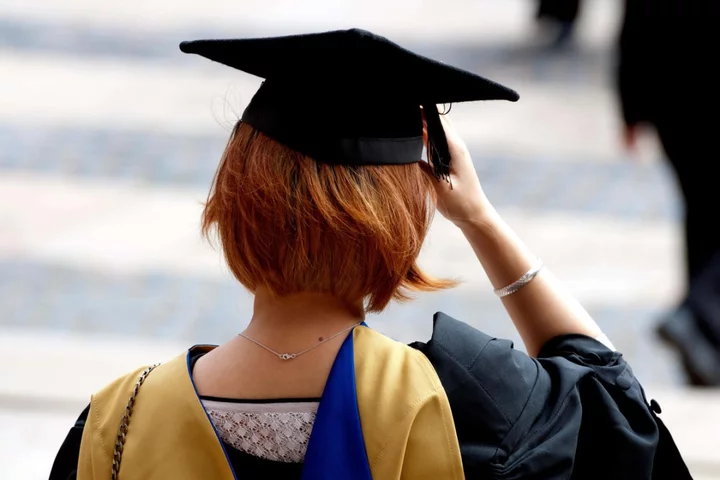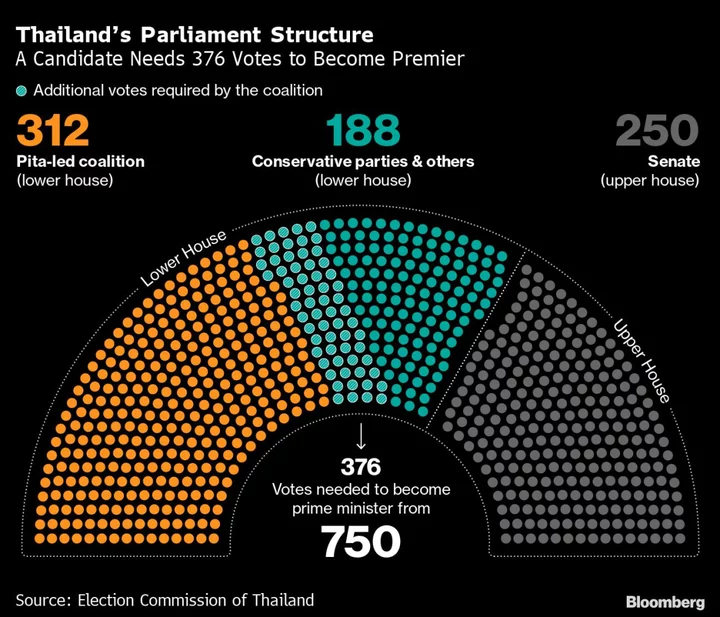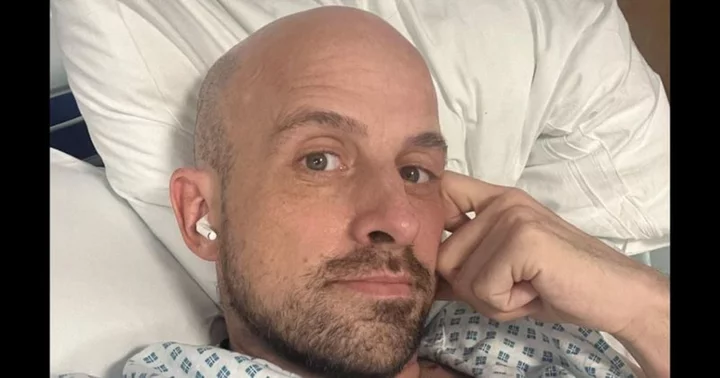Female university students are more than twice as likely as male students to say they have been affected by poor mental health, new analysis suggests. Data shows 12% of female students say they have been affected, compared to 5% of males. Reported mental health problems among university students have almost tripled in recent years, according to the analysis. The percentage of undergraduate students at universities across the UK who said they had experienced mental health difficulties rose from 6% to 16% between the 2016/17 and 2022/23 academic years. It means one in six undergraduates now reports experiencing mental health challenges. The findings suggest further action should be taken to prevent mental health difficulties arising wherever possible, and that services are adequately resourced to support students quickly when they need help Professor Michael Sanders, King’s College London Analysis by the Policy Institute at King’s College London and the Centre for Transforming Access and Student Outcomes in Higher Education (TASO) found a significant part of this increase occurred in the last 12 months, a period during which the cost-of-living crisis intensified. Poor mental health is by far the most common reason for students wanting to drop out of university. Among those considering dropping out, the proportion citing financial distress as the main reason has risen from 3.5% to 8% between 2022 and 2023. But the general upward trend in mental health problems predates both the rise in inflation and the Covid-19 pandemic, indicating that other factors are likely to be at play, researchers said. The analysis – which drew on a dataset of 82,682 full-time UK undergraduates over seven years – shows some groups are more affected than others. Of the non-binary respondents, 42% said they have been affected by poor mental health, along with 30% of trans people. Bisexual people (28%) have the highest average levels of mental health difficulties among LGBTQ groups across the data, while gay men (14%) have the lowest – although this is still greater than the level seen among straight people (7%). White students (12%) have on average worse mental health than their peers from other ethnicities, but those with a “mixed” ethnicity (12%) are just as likely to have mental health difficulties. Undergraduates who attended state schools (15%) have on average worse mental health than their peers who attended private school (11%), while students who get most of their money through a maintenance loan, grant or paid work are more likely to have mental health difficulties than those on scholarships or with family support. Michael Sanders, professor of public policy at the Policy Institute and author of the study, said: “It’s clear the experiences of mental ill-health among students are deeply unequal, and exist along much the same lines as in society at large, with those from the most disadvantaged backgrounds or who often face discrimination being most likely in general to report struggles with their mental health. “The findings suggest further action should be taken to prevent mental health difficulties arising wherever possible, and that services are adequately resourced to support students quickly when they need help.” Dr Omar Khan, chief executive officer of TASO, said: “This report highlights the persistent and widespread mental health challenges faced by students. “While Covid and the cost-of-living crisis have clearly exacerbated such challenges, the upward trend is not new. “We’re working with the higher education sector to better understand what works to improve mental health outcomes for all students.” It comes as a separate report from the NHS Race and Health Observatory calls for more mental health support for people from Gypsy, Roma and Traveller Communities in England. It said that it is estimated that suicide rates among these groups are up to seven times higher than in other communities. Dr Habib Naqvi, chief executive of the NHS Race and Health Observatory, said: “We know that Gypsy, Roma, and Traveller communities face stark challenges in accessing psychological therapies and other mental health services. “This report lays bare the mental health issues and stigma faced by these communities first hand.” Read More Charity boss speaks out over ‘traumatic’ encounter with royal aide Ukraine war’s heaviest fight rages in east - follow live Many parents of under 5s on less than £50k ‘quit work due to childcare costs’ – survey 5 trainer trends that will be everywhere this autumn 11 ways to work autumnal wonder at home
Female university students are more than twice as likely as male students to say they have been affected by poor mental health, new analysis suggests.
Data shows 12% of female students say they have been affected, compared to 5% of males.
Reported mental health problems among university students have almost tripled in recent years, according to the analysis.
The percentage of undergraduate students at universities across the UK who said they had experienced mental health difficulties rose from 6% to 16% between the 2016/17 and 2022/23 academic years.
It means one in six undergraduates now reports experiencing mental health challenges.
The findings suggest further action should be taken to prevent mental health difficulties arising wherever possible, and that services are adequately resourced to support students quickly when they need help
Professor Michael Sanders, King’s College London
Analysis by the Policy Institute at King’s College London and the Centre for Transforming Access and Student Outcomes in Higher Education (TASO) found a significant part of this increase occurred in the last 12 months, a period during which the cost-of-living crisis intensified.
Poor mental health is by far the most common reason for students wanting to drop out of university.
Among those considering dropping out, the proportion citing financial distress as the main reason has risen from 3.5% to 8% between 2022 and 2023.
But the general upward trend in mental health problems predates both the rise in inflation and the Covid-19 pandemic, indicating that other factors are likely to be at play, researchers said.
The analysis – which drew on a dataset of 82,682 full-time UK undergraduates over seven years – shows some groups are more affected than others.
Of the non-binary respondents, 42% said they have been affected by poor mental health, along with 30% of trans people.
Bisexual people (28%) have the highest average levels of mental health difficulties among LGBTQ groups across the data, while gay men (14%) have the lowest – although this is still greater than the level seen among straight people (7%).
White students (12%) have on average worse mental health than their peers from other ethnicities, but those with a “mixed” ethnicity (12%) are just as likely to have mental health difficulties.
Undergraduates who attended state schools (15%) have on average worse mental health than their peers who attended private school (11%), while students who get most of their money through a maintenance loan, grant or paid work are more likely to have mental health difficulties than those on scholarships or with family support.
Michael Sanders, professor of public policy at the Policy Institute and author of the study, said: “It’s clear the experiences of mental ill-health among students are deeply unequal, and exist along much the same lines as in society at large, with those from the most disadvantaged backgrounds or who often face discrimination being most likely in general to report struggles with their mental health.
“The findings suggest further action should be taken to prevent mental health difficulties arising wherever possible, and that services are adequately resourced to support students quickly when they need help.”
Dr Omar Khan, chief executive officer of TASO, said: “This report highlights the persistent and widespread mental health challenges faced by students.
“While Covid and the cost-of-living crisis have clearly exacerbated such challenges, the upward trend is not new.
“We’re working with the higher education sector to better understand what works to improve mental health outcomes for all students.”
It comes as a separate report from the NHS Race and Health Observatory calls for more mental health support for people from Gypsy, Roma and Traveller Communities in England.
It said that it is estimated that suicide rates among these groups are up to seven times higher than in other communities.
Dr Habib Naqvi, chief executive of the NHS Race and Health Observatory, said: “We know that Gypsy, Roma, and Traveller communities face stark challenges in accessing psychological therapies and other mental health services.
“This report lays bare the mental health issues and stigma faced by these communities first hand.”
Read More
Charity boss speaks out over ‘traumatic’ encounter with royal aide
Ukraine war’s heaviest fight rages in east - follow live
Many parents of under 5s on less than £50k ‘quit work due to childcare costs’ – survey
5 trainer trends that will be everywhere this autumn
11 ways to work autumnal wonder at home









